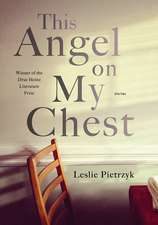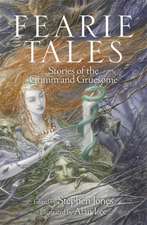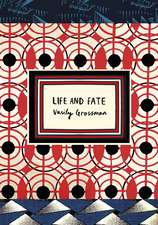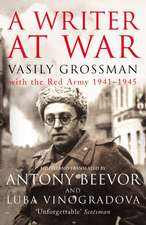The Road: Best books on Russia - Recomandări
Autor Vasily Grossman Traducere de Elizabeth Chandler, Robert and Elizabeth Chandleren Limba Engleză Paperback – sep 2011
| Toate formatele și edițiile | Preț | Express |
|---|---|---|
| Paperback (2) | 49.04 lei 3-5 săpt. | +25.25 lei 7-13 zile |
| Quercus Books – sep 2011 | 49.04 lei 3-5 săpt. | +25.25 lei 7-13 zile |
| NEW YORK REVIEW OF BOOKS – 31 aug 2010 | 111.96 lei 3-5 săpt. |
Preț: 49.04 lei
Preț vechi: 63.88 lei
-23% Nou
9.38€ • 9.80$ • 7.77£
Carte disponibilă
Livrare economică 14-28 martie
Livrare express 28 februarie-06 martie pentru 35.24 lei
Specificații
ISBN-10: 0857381946
Pagini: 400
Ilustrații: B and w photographs
Dimensiuni: 130 x 199 x 25 mm
Greutate: 0.25 kg
Editura: Quercus Books
Seria Best books on Russia - Recomandări
Descriere
By the author of Life and Fate, now a major Radio 4 drama starring Kenneth Branagh.
Vasily Grossman is widely recognized as one of the outstanding literary figures of the twentieth century. The short fiction collected here - satire, comedy, tragedy and pure narrative - illustrate the remarkable breadth of his work, and demonstrate all the bold intelligence, delicate irony and extraordinary vividness for which he has become known.
In addition to the eleven stories, this volume includes the complete text of 'The Hell of Treblinka', one of the first descriptions of a Nazi extermination camp; a powerful and harrowing piece of journalism written only weeks after the camp was dissolved.
Beautifully illuminated by Robert Chandler's introductions and endnotes, with photographs from the family archive, and an Afterword by Grossman's stepson, Fyodor Guber.
Notă biografică
Recenzii
"Grossman's unsparing, literary account of the horrific ways Nazi Germany implemented its ethnic-cleansing program at Treblinka was one of the first reports of a death camp anywhere in Europe and eventually provided prosecutors at the Nuremberg War Crimes Tribunal with crucial background information. The surprise is that up until now and English-language translation of Grossman's lengthy article has never been published in its entirety. That will soon change with the publication of The Road, a collection of Grossman's best short stories and war-time articles, including 'The Hell of Treblinka.'" --Tobias Grey, The Wall Street Journal
“Grossman’s greatness is manifested in a constant ability to surprise his readers: where we lazily expect darkness and gloom, Grossman provides lightness and humour; what might seem at first glance to be narrow polemic turns out, when paid more attention, to have the grandeur of tragedy.” —David Lea, The Literateur
“Vasily Grossman is the Tolstoy of the USSR.” —Martin Amis
“…the collection is a treasure trove that lends the reader an insider's understanding of what it was like to live through the Soviet era, at the same time as it introduces us to Grossman's enduring preoccupation with the wonder and terror of humanity.…A wonderful collection, this – an introduction to the man and his times that also tells us much about his love, his pity and his faith.” —Gillian Slovo, The Guardian
“Grossman’s work excavates from the Soviet rubble vital artifacts of the bitter, the tragic, the self-sacrificing, the indomitable and, ultimately, the inspiring….. [The Road is] a volume that is sensitive to Grossman’s often lyrical language and frames each entry within its time through comprehensive notes.” —Ken Kalfus, The New York Times
“[Grossman’s] report ‘The Hell of Treblinka’ was one of the first to report on an extermination camp, and was used as testimony in the Nuremberg trials. ‘Treblinka” is included in the recently published book, The Road — an original collection of Grossman’s short stories, essays, and letters translated into English for the first time…. This collection serves as a fantastic view into the man’s work, and will hopefully lead readers to seek out his two books of fiction put out a few years earlier.” —Jason Diamond, Jewcy
“Soviet author Grossman volunteered for the army when the Germans invaded in 1941 and spent more than three years as a special correspondent at the front for the army newspaper Red Star. His wartime writing established him as a major "voice" of war–a status resembling in many ways that of Ernie Pyle in America…Grossman was a perceptive observer with an eye for essential detail. His vignettes of the fighting at Kursk and the battles that brought the Red Army into Berlin are models of combat reporting, and the elegiac realism of his description of Treblinka merits wide anthologizing in Holocaust literature.” –Publishers Weekly































